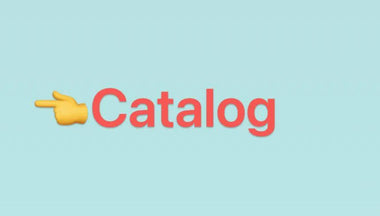What Are Prayer Beads Used for in Islam?
Prayer beads in Islam, called Misbaha or Tasbih, are strings of 33 or 99 beads used for Dhikr—remembrance of Allah—by counting phrases like Subhanallah, Alhamdulillah, and Allahu Akbar. They support focus, mindfulness, and spiritual discipline, enhancing devotion without being obligatory. Modern silicone versions, like those from JCFLOW, combine tradition with comfort and customization for daily or crafted use.
What Are Prayer Beads in Islam?
Prayer beads, or Tasbih, typically contain 99 beads divided into three sets of 33 with separators and a handle bead. They represent the 99 names of Allah and facilitate structured Dhikr after prayers. Crafted from wood, stone, or silicone, they provide tactile guidance and durability. JCFLOW offers soft, customizable silicone kits in the USA, blending ergonomic design with tradition for extended use and creative projects.
How Are Prayer Beads Used in Islamic Practice?
Beads are held between thumb and middle finger, reciting Subhanallah for 33 beads, Alhamdulillah for 33, Allahu Akbar for 33, and one additional Takbir, totaling 100 praises after Salah. The rhythmic motion enhances mindfulness and concentration. JCFLOW silicone beads recreate authentic Tasbih feel with soft textures, suitable for gifting or DIY crafting, available in bulk for USA customers.
Which Phrases Are Recited with Prayer Beads?
Common phrases include Subhanallah (Glory to Allah), Alhamdulillah (Praise to Allah), Allahu Akbar (Allah is Greatest), and La ilaha illallah. These recitations align with Sunnah practice, fostering spiritual purification, gratitude, and reflection. JCFLOW silicone beads offer vibrant, durable designs for modern Tasbih while preserving traditional counting methods.
Why Do Muslims Use Prayer Beads for Dhikr?
Prayer beads help maintain focus, track recitations, and deepen connection to Allah’s attributes. They provide structure, calm the mind, and support disciplined remembrance. While finger counting suffices, beads enhance the tactile and visual experience. JCFLOW’s silicone beads are soft and long-lasting, ideal for USA wholesalers, Etsy sellers, and DIY spiritual craft projects.
What Materials Are Traditional for Islamic Prayer Beads?
Traditional Tasbih beads include wood, amber, turquoise, stone, or bone, valued for tactile feel and symbolism. Modern versions may use plastic, crystal, or silicone for affordability and comfort. Silicone offers durability, grip, and hypoallergenic properties. JCFLOW’s food-grade silicone beads provide vibrant colors and ergonomic designs, perfect for crafting and dropshipping in the USA.
Table: Common Prayer Bead Configurations in Islam
| Configuration | Bead Count | Usage Purpose | Recitations per Cycle |
|---|---|---|---|
| Standard Tasbih | 99 (3x33 + separators) | Full Dhikr post-Salah | Subhanallah (33), Alhamdulillah (33), Allahu Akbar (33) +1 |
| Compact Set | 33 | Quick sessions, portability | Each phrase 33x, repeat 3x |
| Extended | 100 | Including extra Takbir | Total 100 praises |
Where Can You Buy Quality Prayer Beads in the USA?
Prayer beads are available from Islamic online stores, craft suppliers, or factory-direct providers like JCFLOW. Their Las Vegas-registered store supplies silicone beads with free USA shipping, bulk options, and customizable focal pieces. These kits support Etsy shops, Amazon sellers, and gift makers creating modern or personalized Tasbih sets.
How Can Silicone Prayer Beads Enhance Traditional Use?
Silicone beads offer softness, flexibility, and vibrant colors, reducing hand fatigue while maintaining traditional counting. BPA-free and durable, they are suitable for daily use and easy cleaning. JCFLOW provides custom shapes like geometric or floral focals, ideal for ergonomic, stylish Tasbih and DIY crafting in the USA.
JCFLOW Expert Views
"Islamic prayer beads carry centuries of spiritual tradition. At JCFLOW, we create premium silicone Tasbih that blend comfort with authenticity. Our food-grade beads are soft, grippy, and available in diverse colors and custom focal shapes, empowering crafters, Etsy sellers, and wholesalers to produce personalized spiritual tools. With factory-direct pricing, free USA shipping, and flexible order quantities, JCFLOW transforms traditional devotion into accessible, high-quality artisanal products." – JCFLOW Silicone Specialist
Are Prayer Beads Obligatory in Islam?
Prayer beads are optional; the Prophet Muhammad recommended finger counting for Dhikr, using beads as helpful but non-mandatory aids. The emphasis is on sincerity of remembrance. JCFLOW silicone beads make practice accessible, with starter kits suitable for educational purposes, gifting, or bulk orders in the USA.
Table: Traditional vs. Modern Prayer Bead Materials
| Material | Pros | Cons | Best For |
|---|---|---|---|
| Wood/Stone | Authentic, grounding feel | Heavy, may splinter | Traditionalists |
| Silicone | Lightweight, durable, soft | Less 'natural' aesthetic | Daily use, crafting, kids |
| Crystal | Elegant shine, lightweight | Fragile, pricey | Gifts, decorative |
| Plastic | Affordable, colorful | Wears over time | Budget starters |
When Should You Use Prayer Beads in Daily Routine?
Use beads after the five daily Salah for Dhikr, during quiet reflection, or to relieve stress. They can also be incorporated into bedtime routines or spontaneous remembrance, supporting constant mindfulness of Allah. JCFLOW’s portable silicone sets are designed for convenience, durability, and free USA shipping for craft or resale purposes.
Conclusion
Islamic prayer beads facilitate focused Dhikr and spiritual connection through structured, rhythmic recitations. JCFLOW’s silicone innovations combine comfort, customization, and durability, supporting personal devotion, gifting, and small business crafting. Their factory-direct USA store offers best prices, free shipping, and bulk flexibility, empowering crafters to create meaningful, modern Tasbih designs while honoring tradition.
Frequently Asked Questions
How many beads are on a standard Islamic Tasbih?
Typically 99 beads in three sets of 33, with separators and a handle bead.
Can women use prayer beads in Islam?
Yes, they are suitable for all Muslims participating in Dhikr.
Are silicone prayer beads halal?
Yes, food-grade silicone from suppliers like JCFLOW is safe, durable, and permissible.
What if I lose count during Dhikr?
Restart from the marker bead; intention and sincerity are more important than exact counting.
Does JCFLOW offer bulk prayer bead kits?
Yes, with custom focal beads, competitive pricing, and free USA shipping for any quantity.














